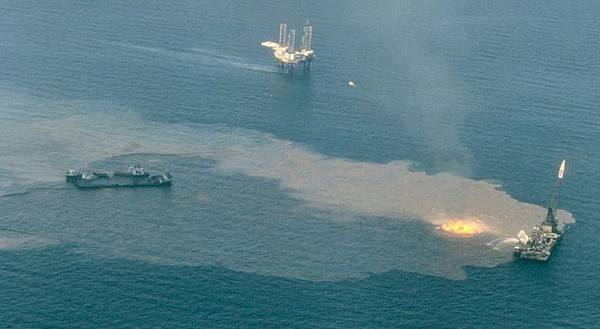Response Concludes for Oil Sheen Off Huntington Beach
A Unified Command on Monday concluded its response to an oil sheen spotted off the coast of Huntington Beach, California. Cleanup crews managed to recover approximately 85 gallons of product...




On June 3, 1979, the 2 mile deep exploratory well, IXTOC I, blew out in the Bahia de Campeche, 600 miles south of Texas in the Gulf of Mexico. The water depth at the wellhead site was about 50 m (164 feet).
The IXTOC I was being drilled by the SEDCO 135 (Sedco has since been acquired by Transocean, owner of the Deepwater Horizon), a semi-submersible platform on lease to Petroleos Mexicanos (PEMEX).
The blowout was caused to the a phenomenon called “swabbing”. Essentially, while pulling drillpipe out of the wellbore, a process called “tripping”, the drillpipe in the open hole acted like a syringe, which decreased the pressure inside the wellbore. This decrease in pressure led to an influx of hydrocarbons, including natural gas, that went undetected. This influx is called a “kick”.
As the kick migrated up the wellbore, it expanded exponentially and violently in a blowout, which subsequently ignited and caused the platform to catch fire. The burning platform collapsed into the wellhead area hindering any immediate attempts to control the blowout.
PEMEX hired blowout control experts and other spill control experts including Red Adair, Martech International of Houston, and the Mexican diving company, Daivaz. The Martech response included 50 personnel on site, the remotely operated vehicle TREC, and the submersible Pioneer I. The TREC attempted to find a safe approach to the Blowout Preventer (BOP). The approach was complicated by poor visibility and debris on the seafloor including derrick wreckage and 3000 meters of drillpipe. Divers were eventually able to reach and activate the BOP, but the pressure of the oil and gas caused the valves to rupture. The BOP was then reopened to prevent destroying it.
Over the next 9 months, with uncontrolled oil flowing into the Gulf of Mexico, two relief wells were drilled to relieve pressure from the well to allow response personnel to cap it.
The IXTOC I well leaked oil at a rate of 10,000 – 30,000 barrels per day until it was finally capped on March 23, 1980.


| USCG Case History | 1979-Jun-03 |
| Behavior of Oil | 1979-Jun-03 |
| USCG Case History | 1979-Jun-03 |
| References | 1979-Jun-03 |
| Countermeasures/ Mitigation | 1979-Jun-03 |
| Other Special Interest | 1979-Jun-03 |
| Other Special Interest Issues | 1979-Jun-03 |
| Shoreline Types Impacted | 1979-Jun-03 |
Information provided by NOAA (link)
Join the gCaptain Club for curated content, insider opinions, and vibrant community discussions.


Join the 105,959 members that receive our newsletter.
Have a news tip? Let us know.
Access exclusive insights, engage in vibrant discussions, and gain perspectives from our CEO.
Sign Up




Maritime and offshore news trusted by our 105,959 members delivered daily straight to your inbox.



Essential news coupled with the finest maritime content sourced from across the globe.
Sign Up